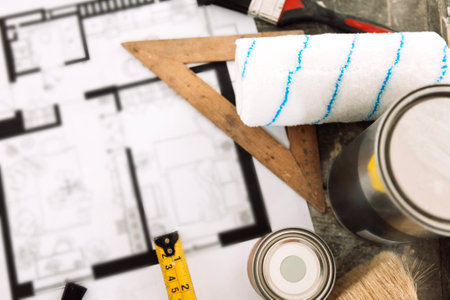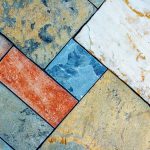Introduction to Bathroom Tile Selection
Choosing the right tile materials for your bathroom is essential for both durability and style. Bathrooms are high-moisture areas, which means that not all tiles will perform well in this environment. The right tile should be resistant to water, easy to maintain, and visually appealing.
Why Tile Selection Matters
Bathroom tiles do more than just enhance aesthetics—they also contribute to the longevity and functionality of your space. The wrong choice can lead to issues like mold growth, staining, or even cracking over time. That’s why it’s important to consider factors like moisture resistance, durability, and design when selecting tiles.
Key Factors to Consider
| Factor | Importance |
|---|---|
| Moisture Resistance | Tiles must withstand constant exposure to water and humidity without damage. |
| Durability | Bathroom floors and walls experience daily wear, so choosing a sturdy material is crucial. |
| Aesthetics | The right tile enhances the overall look and feel of your bathroom space. |
| Maintenance | Some tiles require more upkeep than others; low-maintenance options save time and effort. |
| Slip Resistance | Especially important for bathroom floors to prevent accidents in wet conditions. |
Common Tile Materials for Bathrooms
There are various types of tiles available, each with unique benefits. Some popular choices include:
- Ceramic Tiles: Affordable, versatile, and available in numerous designs.
- Porcelain Tiles: Highly durable and water-resistant, ideal for wet areas.
- Natural Stone Tiles: Elegant and timeless but may require sealing for protection.
- Glass Tiles: Reflective and stylish, great for accent walls or backsplashes.
Making the Right Choice
Selecting the best tile depends on your specific needs and preferences. If you prioritize durability and low maintenance, porcelain might be the best option. For a luxurious feel, natural stone could be a great choice. By understanding these key factors, you can make an informed decision that ensures both style and longevity in your bathroom.
2. Porcelain Tiles: Strength and Versatility
When it comes to choosing the best tile material for a bathroom, porcelain tiles stand out as one of the top choices. Known for their durability, water resistance, and vast design options, porcelain tiles offer both functionality and style, making them ideal for bathroom floors and walls.
Why Choose Porcelain Tiles?
Porcelain tiles are made from dense clay that is fired at high temperatures, resulting in a hard, non-porous surface. This makes them highly resistant to moisture, stains, and scratches—perfect for the humid environment of a bathroom.
Key Benefits of Porcelain Tiles
| Benefit | Description |
|---|---|
| Water Resistance | Porcelain tiles absorb very little water, making them ideal for wet areas like showers and bathroom floors. |
| Durability | Their dense composition makes them resistant to cracks, chips, and wear over time. |
| Low Maintenance | Easily cleaned with simple sweeping and mopping; they resist stains and bacteria growth. |
| Diverse Design Options | Available in various colors, textures, and patterns—including wood or marble looks—for customized aesthetics. |
A Perfect Choice for Bathroom Flooring and Walls
The versatility of porcelain tiles allows homeowners to use them on both floors and walls. Whether you prefer a sleek modern look or a classic design, there are numerous styles to choose from. Matte finishes provide a subtle elegance, while glossy surfaces add brightness to smaller spaces. Textured porcelain tiles can also help improve traction in wet areas, enhancing bathroom safety.
Installation Considerations
While porcelain tiles are an excellent choice for bathrooms, proper installation is crucial. Due to their density, cutting and setting these tiles require specialized tools and expertise. Hiring a professional ensures precision and longevity.
![]()
3. Ceramic Tiles: Affordable and Stylish
Ceramic tiles are one of the most popular choices for bathroom flooring and walls, thanks to their affordability and versatility. They offer a stylish look without breaking the bank, making them a great option for homeowners who want both durability and aesthetic appeal.
Why Choose Ceramic Tiles?
Ceramic tiles come in a wide range of colors, textures, and patterns, allowing you to create a bathroom design that matches your personal style. Whether you prefer a modern, minimalist look or a more traditional feel, ceramic tiles can complement any design preference.
Benefits of Ceramic Tiles
| Benefit | Description |
|---|---|
| Budget-Friendly | Ceramic tiles are generally more affordable than other tile materials like porcelain or natural stone. |
| Variety of Styles | A wide selection of colors, textures, and patterns allows for customization. |
| Easy Maintenance | Ceramic tiles are resistant to stains and water damage, making them easy to clean and maintain. |
| Durability | Ceramic is strong enough to withstand daily wear and tear in the bathroom environment. |
| Mold & Mildew Resistance | The glazed surface helps prevent moisture absorption, reducing mold growth. |
Ceramic Tile Design Options
Ceramic tiles can mimic the appearance of other materials such as wood, stone, or even concrete. This makes them a versatile choice for those who want a high-end look without the associated cost. You can also choose between glossy or matte finishes depending on the ambiance you want to create in your bathroom.
Installation Considerations
Ceramic tiles are relatively easy to install compared to some other materials. However, proper sealing of grout lines is essential to prevent water infiltration. If youre going for DIY installation, be sure to use the right adhesive and spacing techniques for a professional-looking finish.
4. Natural Stone Tiles: Luxury and Elegance
Natural stone tiles bring a timeless and sophisticated look to any bathroom. With materials like marble, granite, and slate, these tiles offer unique patterns and textures that add a touch of luxury. However, they do require specific maintenance to keep them looking their best.
Popular Types of Natural Stone Tiles
Each type of natural stone has its own unique characteristics, making it suitable for different bathroom applications. Here’s a quick comparison:
| Type | Appearance | Durability | Maintenance | Best Uses |
|---|---|---|---|---|
| Marble | Elegant with veining patterns | Moderate (can scratch and stain) | Needs sealing; sensitive to acids | Walls, countertops, accent areas |
| Granite | Diverse colors with speckles | Highly durable and scratch-resistant | Easier to maintain; requires sealing | Floors, countertops, high-traffic areas |
| Slate | Naturally textured, earthy tones | Durable and slip-resistant | Mild sealing needed; easy upkeep | Floors, shower areas, rustic designs |
Caring for Natural Stone Tiles
The beauty of natural stone comes with some maintenance requirements. Sealing the tiles regularly helps prevent moisture absorption and staining. Its also important to clean them with pH-neutral cleaners to avoid damage from acidic substances.
Is Natural Stone Right for Your Bathroom?
If youre looking for a high-end, elegant aesthetic, natural stone is an excellent choice. However, its best suited for areas where you can manage regular upkeep. For a low-maintenance option with a similar look, consider porcelain tiles that mimic natural stone.
5. Glass and Mosaic Tiles: Aesthetic and Accentuating
Glass and mosaic tiles bring a unique blend of elegance, texture, and visual appeal to any bathroom. Whether used on walls, backsplashes, or shower areas, these tiles enhance the space with their reflective properties and intricate designs while offering long-lasting durability.
Why Choose Glass and Mosaic Tiles?
Glass and mosaic tiles are popular choices for bathrooms due to their ability to create depth, brightness, and artistic expression. Here are some key benefits:
| Feature | Benefits |
|---|---|
| Visual Appeal | Their glossy surface reflects light, making small bathrooms appear more spacious and bright. |
| Design Versatility | Available in various colors, shapes, and patterns, allowing homeowners to create custom looks. |
| Water Resistance | The non-porous nature of glass prevents moisture absorption, reducing mold and mildew growth. |
| Durability | Toughened glass tiles resist stains and scratches, ensuring longevity in wet environments. |
| Easy Maintenance | A simple wipe with a damp cloth keeps them looking pristine without requiring special cleaners. |
Best Areas to Use Glass and Mosaic Tiles in the Bathroom
The versatility of these tiles makes them ideal for multiple applications:
Backsplashes
A glass or mosaic tile backsplash adds a decorative focal point behind sinks and vanities while protecting walls from water splashes.
Shower Walls
The reflective quality of glass tiles enhances natural light in showers, creating a spa-like ambiance.
Accent Borders
Mosaic tile borders break up large tile sections with intricate patterns, adding contrast and personality to the design.
Niche Shelving
Tiling built-in shelves with mosaic designs provides both practicality and stylish flair within showers or near bathtubs.
Tips for Installing Glass and Mosaic Tiles
- Select the Right Grout: Use non-sanded grout to prevent scratching delicate glass surfaces.
- Use Proper Adhesive: Opt for white thin-set mortar to maintain the clarity of translucent glass tiles.
- Avoid Heavy Impact: Though durable, glass tiles can chip if subjected to excessive force—handle with care during installation.
- Create a Balanced Design: Mix mosaic accents with larger neutral tiles to avoid overwhelming the space.
If youre looking for a way to add sophistication and character to your bathroom while ensuring durability, glass and mosaic tiles are excellent choices. Their ability to reflect light, resist moisture, and provide endless design possibilities makes them a standout option for any stylish bathroom renovation.


